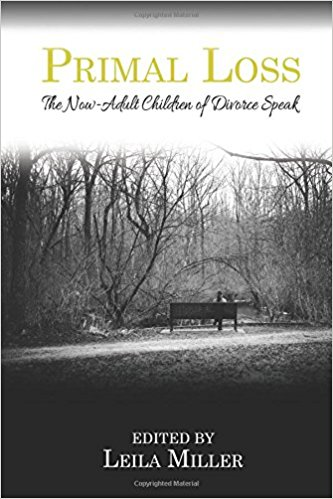Perhaps the single greatest naïveté of my life (well, so far) is/was what I once believed about Generation X and divorce. It went something like this:
My generation is the first one whose parents divorced essentially without social stigma. So, they did it in greater numbers. So, my generation got a close-up look at divorce from a child’s eyes. Armed with that knowledge, we would move heaven and earth to prevent visiting similar pain upon our offspring. So, the divorce rate would go down.
How’d that work out?
My parents divorced when my sister had just turned 8, and I was not quite 11. So far, my wife Lea and I are holding up our end. We married in May 1997, and we’re still strong. I would call the possibility of divorce remote.
 Societally, though, it was a silly thought to have. The divorce rate has hung in pretty solidly at flip-a-coin, and the results are devastating, particularly on the children whose plights are so often papered over with “children are resilient!” and “they’ll be better away from this toxic environment!” and other similarly trite catch phrases.
Societally, though, it was a silly thought to have. The divorce rate has hung in pretty solidly at flip-a-coin, and the results are devastating, particularly on the children whose plights are so often papered over with “children are resilient!” and “they’ll be better away from this toxic environment!” and other similarly trite catch phrases.
(That is not to say that divorce is never indicated. People need to get away from unrepentant addicts and/or abusers, for example. But children and their concerns all too often get a Band-Aid platitude and no further consideration, even in marriages that could have been saved with a little effort.)
Seventy adult children of divorce speak in Leila Miller’s Primal Loss.
In the Divorce Fantasy World, there are only two choices. Unhappy parents stay miserably married and fight for the rest of their lives, or they get divorced and everyone lives happily ever after. The idea that one or both parents should change their behavior doesn’t register as an option, nor does the idea that the divorce might seriously wound the kids. – from the Foreword
The book asks a different question in each of its eight chapters. Responses are organized by topic and for readability, labeled with a number that corresponds to a brief biography of the respondent available at the end of the book.
This was a difficult book for me to read. I’ve done the best I can to resolve the difficulties in that part of my life, because I certainly don’t want to carry around the hurt and resentment day to day, decades later. I had to tear scars open a bit and hurt again to really connect as I turned pages. And even though the problems my sister and I had as a result of our parents’ divorce weren’t as bad as they could have been, there was still plenty that happened to us—that was said to us, that was acted to us—that most certainly wasn’t “normal” or healthy.
A recurrent theme throughout the responses in all eight chapters was that of emotionally unhealthy adults still trying to parent, and wow, could I ever relate to that. There’s no remaining bandwidth for your kids to get your best when you’re just barely keeping it on the road yourself. And I was adrift in some ways I shouldn’t have been in my adolescence.
I think Primal Loss‘s most important message is the same one I have preached for years, and one that needs to be drilled into the heads of any parents considering divorce: your children will never be the same. That is not to say they’re incapable of recovery and won’t have successful lives, but to say that when you look at them now, pre-divorce, anything positive you see is subject to significant trauma and subsequent emergency repair. Is whatever you’re feeling worth that risk?
Now if the seeds of addiction, promiscuity, criminal life, or anything of the sort are already there, then little can help them germinate more effectively than your divorce. But even if they aren’t, you are still knocking your kids—people you chose to make exist—for what is likely the biggest loop of their lives.
Do you need to end your marriage that badly?
Primal Loss belongs on the nightstand of any parents considering divorce, and certainly in any church library. It is a powerful counterattack to “comforting” platitudes about children and divorce, and I’m heartened it’s out there.
9/10
You might also like:
- Pre-review of Leila Miller’s Primal Loss
I review a book once in a while on BoWilliams.com, but I can’t recall ever posting a “pre-review” be… - “Thank you for not getting divorced.”
We all went out to eat last night, and one of the boys said that on the way. It reminded me immediat… - BoWilliams.com On Marriage, Part VII: The Scorched Earth of Divorce
One of the most glorious naïvetés of my adulthood was how I thought—hoped—Generation X would approac… - “Mom, I’ll check in at 2:00…”
What was your leisure time like at nine years old? If you were born before 1975 or so, chances are e… - Review: Heather Has Two Mommies
“The most important thing about a family is that all the people in it love each other.” – Heather Ha…
